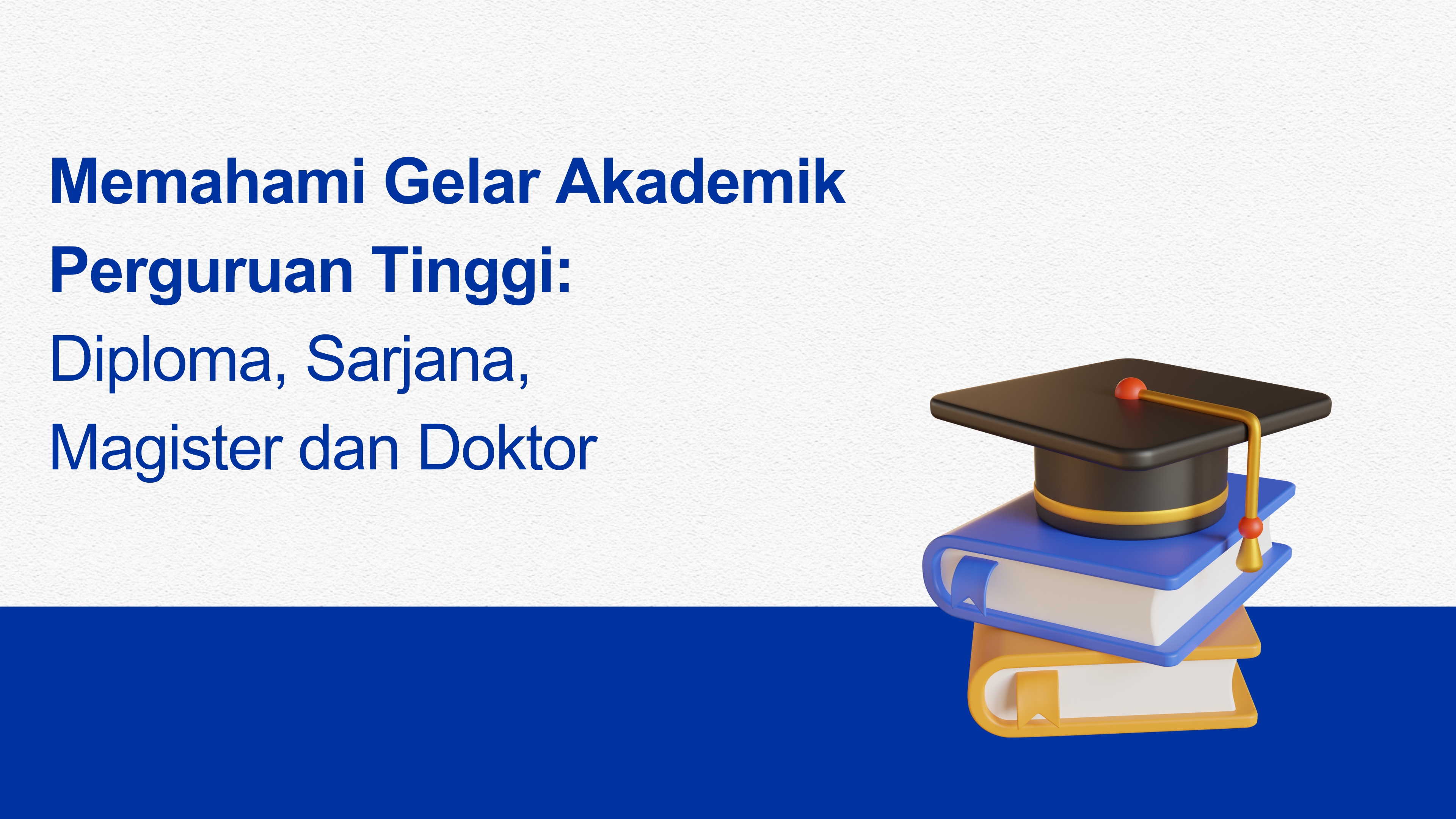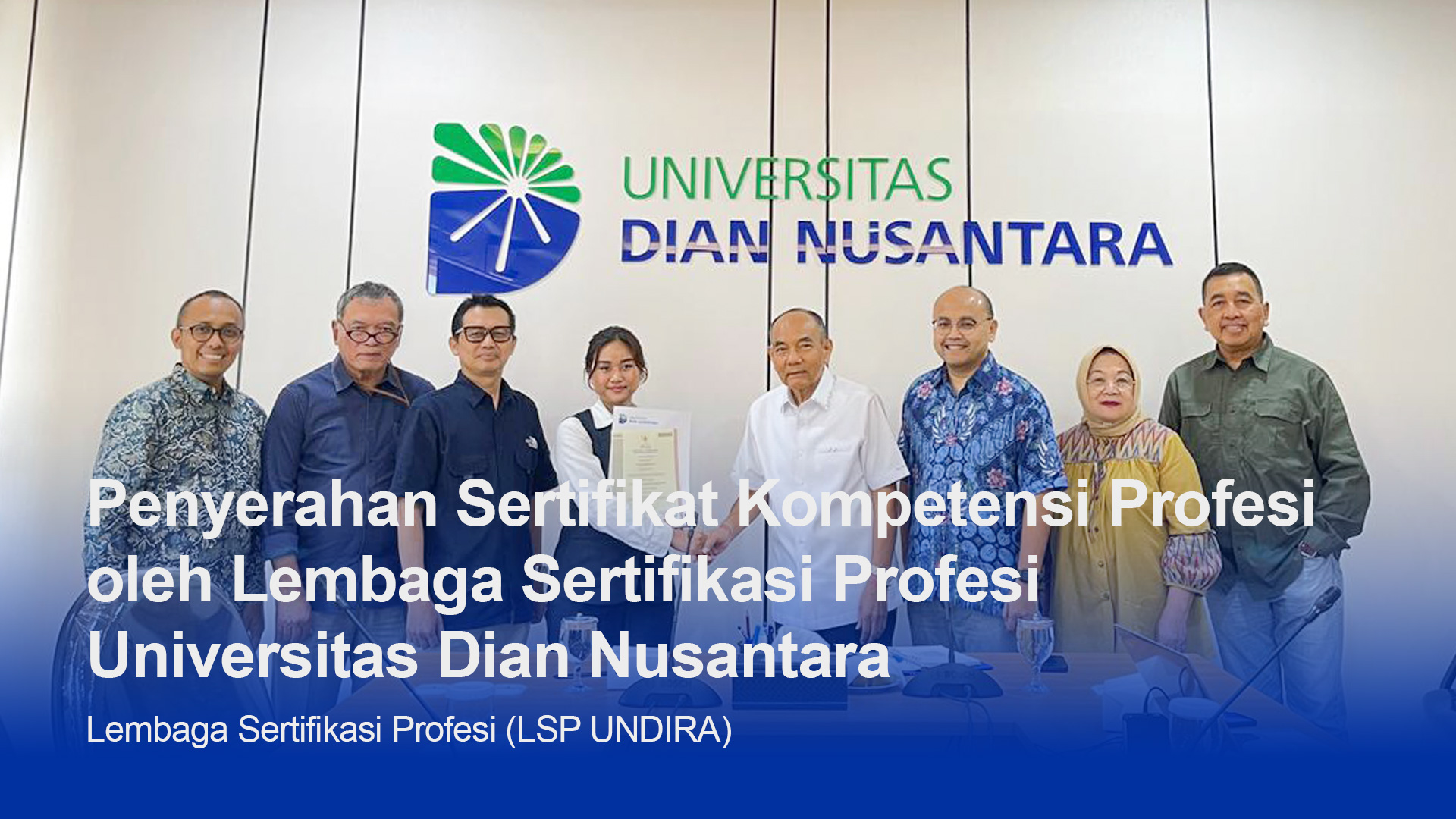Understanding Academic Degrees in Higher Education: Diploma, Bachelor's, Master's, and Doctorate

Education is one of the most important elements in improving scientific literacy and digitalization, especially in an era where various buzzers and misinformation spread through social media. According to Law No. 12 of 2012 Article 4 concerning Higher Education, one of the functions of education is the development of capabilities and the formation of dignified character in order to educate the nation's life.
In addition, education is also a form of long-term investment. With the knowledge gained from education, young generations can achieve both theoretical and practical competencies that can be useful in their respective fields of work. Therefore, various universities provide options for students who want to continue their academic levels.
In general, the academic education system is divided into 4 levels, namely; Diploma, Bachelor's, Master's, and Doctorate. Diploma and Bachelor's levels can be chosen by a student when they have successfully completed the High School (SMA) or Vocational High School (SMK) level.
Although the four educational levels have similar cores, where all levels focus and provide relevant studies according to each student's field of study, each level generally has different stages and has its own characteristics at each level. Of course, each characteristic offers various prospects and challenges in its implementation.
Here are some differences between each level of education:
1. Diploma Although the Diploma level still includes theoretical studies, it generally focuses on developing practical skills according to each specialization field so that graduates are ready to enter the workforce. Diploma programs are generally offered by universities that have vocational or polytechnic programs.
The Diploma program itself has four levels that can be pursued, namely; D1 with the title of A.P or Ahli Pratama, D2 with the title A.Ma or Ahli Muda, D3 with the title A.Md or Ahli Madya, and D4 with the title S.ST or Sarjana Sains Terapan.
One of the main differences from the thesis in the Bachelor's program is that the Diploma level generally includes final assignments in the form of practical work and scientific reports. The Diploma level, which tends to be favored by the majority of applicants, is generally at the D3 and D4 levels because:
-
Some job levels still accept D3 and D4 amid the high demand for Bachelor's graduates.
-
The D4 level is equivalent to the Bachelor's (S1) level.
2. Bachelor's The Bachelor's level is directed towards the mastery and development of science, technology, and culture, with the majority involving a balance between practical and theoretical learning. The Bachelor's education level generally takes 4 to 5 years to complete, although there are some examples where students can complete their studies within 3.5 years.
Additionally, the Bachelor's level also focuses on analytical and critical skills. This can be seen through the final assignment in the form of a thesis, a written research that includes an analysis of a specific problem.
Therefore, the Bachelor's program, with its balanced approach, is often seen as a contrast to the Diploma program, which focuses on a practical approach. However, both share similarities such as having a curriculum structure that includes core and elective courses, final projects or assignments, as well as evaluations such as exams or performance assessments.
3. Master's The Master's degree, also known as S2, is an advanced education level that can be pursued after completing a Bachelor's (S1) program.
Overall, the Master's program focuses on deepening knowledge and specialization in the studies carried out at the Bachelor's level. The Master's program usually takes 4 academic years, consisting of 36 - 48 credits. The final output of the Master's program is a thesis written by the student. Unlike the Bachelor's thesis, the Master's thesis includes an evaluation of existing theories based on previous research.
4. Doctorate The Doctorate program, commonly known as S3, has a minimum education duration of 3 years with a total of 44-60 credits. In terms of the final assignment given, the dissertation research at the Doctorate level tends to have more intensive depth. However, the difference from the Master's thesis lies in the final output, where the dissertation requires students to not only research but also create new theoretical breakthroughs based on existing theories.
It is hoped that this article can serve as a reference in understanding the various levels of education. By knowing the differences between a diploma, bachelor's, master's, and doctorate, students can make the right decision regarding the education level that best suits their interests and career goals.
(Kornelia Johana Dacosta / Humas UNDIRA)
Press Contact :
Biro Humas & Sekretariat Universitas Dian Nusantara
Facebook : www.facebook.com/undiraofficial
Instagram : www.instagram.com/undiraofficial
Twitter : www.twitter.com/undiraofficial
www.undira.ac.id
Other

Committed to Producing Professionals, LSP UNDIRA Issues Inaugural Competency Certificate
Read more
From an Idea to the Soul and Body of the Nation: Igniting the Flame of the Garuda on Pancasila Day
Read more
The Importance of Publication in the Academic World: Sharing Knowledge with the World
Read more
Campus Tanjung Duren
Jln. Tanjung Duren Barat II No. 1
Grogol, Jakarta Barat. 11470
Campus Green Ville
JIn. Mangga XIV No. 3
Campus Cibubur
Jln. Rawa Dolar 65
Jatiranggon Kec. Jatisampurna, Bekasi. 17432







